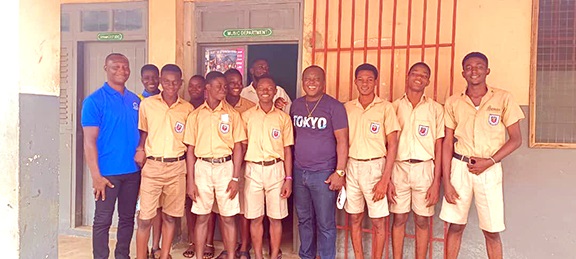Dela Botri is a well-known Atenteben player who has wowed audiences in many countries with his bamboo flute, and has now decided to head home to Keta to teach youngsters how to play the instrument for free.
He would be doing that through his Dela Botri Music Foundation. The idea is to set up and coach a traditional music ensemble made up of students from Keta Secondary School (Ketasco). Basic instruments for the ensemble will comprise flutes, bells, rattles, drums and xylophone.
According to Botri, who is founder and leader of the Hewale Sounds band, he had already acquired some of the instruments for the project and would donate the whole set to the school after the training programme.
He was grateful to a few friends who had come on board to help make the initiative a success.
“I come from Keta and the ensemble project is my way of giving something back to my people. I have taught many in Accra and abroad how to play the flute. I know there are many young people in my hometown who can also play well when given the chance.
“Some of my former students in Accra are now earning their living playing flute in Canada, United States, United Kingdom and other places. I don’t see why I shouldn’t pass on the knowledge to youth from my hometown,” said Botri.
He would travel to Keta from Accra on weekends to teach the students. He was optimistic they would be able to absorb enough to enable them start playing complete tunes by themselves within three months.
“They would only need to keep practising consistently after that, still with my guidance,” he added.
Botri, who still teaches privately in Accra and runs online courses for learners abroad, said someone was kind enough to buy him an Atenteben when he was very young and anxious to learn to play. That was one of the reasons why he was anxious to help other young people to also master the instrument.
He recently came back from Japan where he, together with xylophonist Aaron Bebe Sukura and percussionist Winchester Nii Tete, participated in a programme facilitated by the Ghana Embassy in Japan dubbed ‘Three Ghanaian Masters’.
By George Clifford Owusu

